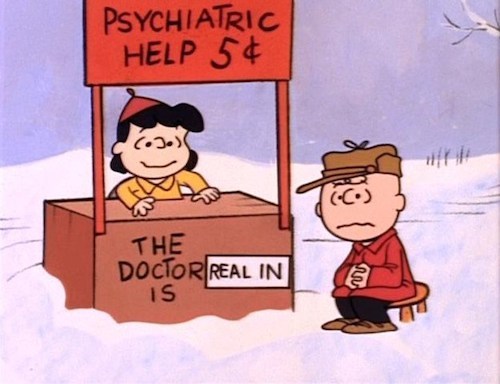If you have the misfortune of having been raised by one or more narcissists, chances are you've heard classics like these: "You're just too sensitive." "You need to learn to let things go." "When are you going to move on from the past?" And the fauxpology "I'm sorry you feel I'm such a disappointment as a (fill in blank) mother."
Invalidation, denial, and gaslighting (making you think you're crazy) are tried-and-true tools of the narcissist's trade, and if you grew up having the adults meant to love and nurture you use them against you you're probably especially vulnerable to such treatment as an adult. Unfortunately for many sufferers of narcissistic trauma, looking for support from a therapist can be hazardous terrain.
Seven years ago Los Angeles-based psychotherapist Fiona Steele shifted her long-established practice to work exclusively with clients dealing with narcissist fallout because, she said, it's an underserved population with an overwhelming need. "I'm in awe of how so few practitioners understand narcissism," Steele told me. "So many of the clients that come to me have dealt with therapists who don't have a clue about the insidious ways narcissists suck out the life of the people around them." Steele advised people seeking therapeutic support for narcissist abuse to find someone with a firm understanding of narcissism and a solid treatment toolkit beyond talk therapy. Her message to sufferers is, "You are not crazy."
Regina Collins is a licensed professional counselor based in Alexandria, Virginia, specializing in working with narcissist trauma. Many of her clients come to her having been retraumatized by therapists who don't understand narcissism or narcissistic family dynamics. "Clients often bring up the fact that they feel 'crazy' because their experiences were questioned or negated outright by clinicians who don't understand the behavior patterns of narcissists. This invalidation by someone who is supposed to be safe and trustworthy often mirrors the gaslighting that was experienced in their family of origin," explained Collins. She pointed out the potentially devastating "forgive and forget" line of advice from unqualified mental health workers: "One of the most distressing issues people have identified is dealing with the clinician who pushes them to 'forgive' their parent and continue to have contact, even if it does not feel safe to the client. Numerous clients have shared with me that they were urged to 'preserve the family' and continue to see the parent even though the costs were high and benefits few, if any. As clinicians it is our place to support clients as they make their own decisions about contact, and we shouldn't judge clients if they determine that 'no contact' is safest for them."
Psychotherapist and narcissism expert Julie Tenenberg, practicing in Oakland, California, also emphasized the importance of working with a properly educated therapist. "I've had a number of [narcissistically abused] people come to me who have seen a therapist who has unconsciously reinjured the client. The damage of the wrong therapy is new trauma, not just reactivating old trauma," said Tenenberg. "This population is manifesting shame, guilt, self-neglect, and physical symptoms of trauma. They need a witness who is sensitive, not critical or dismissive, someone who will not reenact the narcissistic response."
Dr. Karyl McBride, narcissistic abuse recovery pioneer and author of Will I Ever Be Good Enough?, encourages adult children of narcissists to vet their mental health providers to make sure they are conversant with narcissism. "If the therapist does not understand the dynamics of narcissism and its debilitating effects, it is easy for them to encourage the 'get over it already, the past is the past' mentality. When they do this, they are not validating the feelings of the client and the childhood issues are deeply minimized and discounted," she explained. McBride trains clinicians in her five-step model for helping clients, and she has created a referral network of therapists who specialize in working with adult children of narcissists. Can't find a qualified therapist in your area? Many members of McBride's network offer phone sessions.
Julie Hall is the author of the forthcoming memoir Carry You about life, and a few near deaths, in a narcissistic family. Read her blog The Narcissist Family Files on her website. Read her other articles on The HuffPost.
Creative Commons image courtesy of frankieleon.
